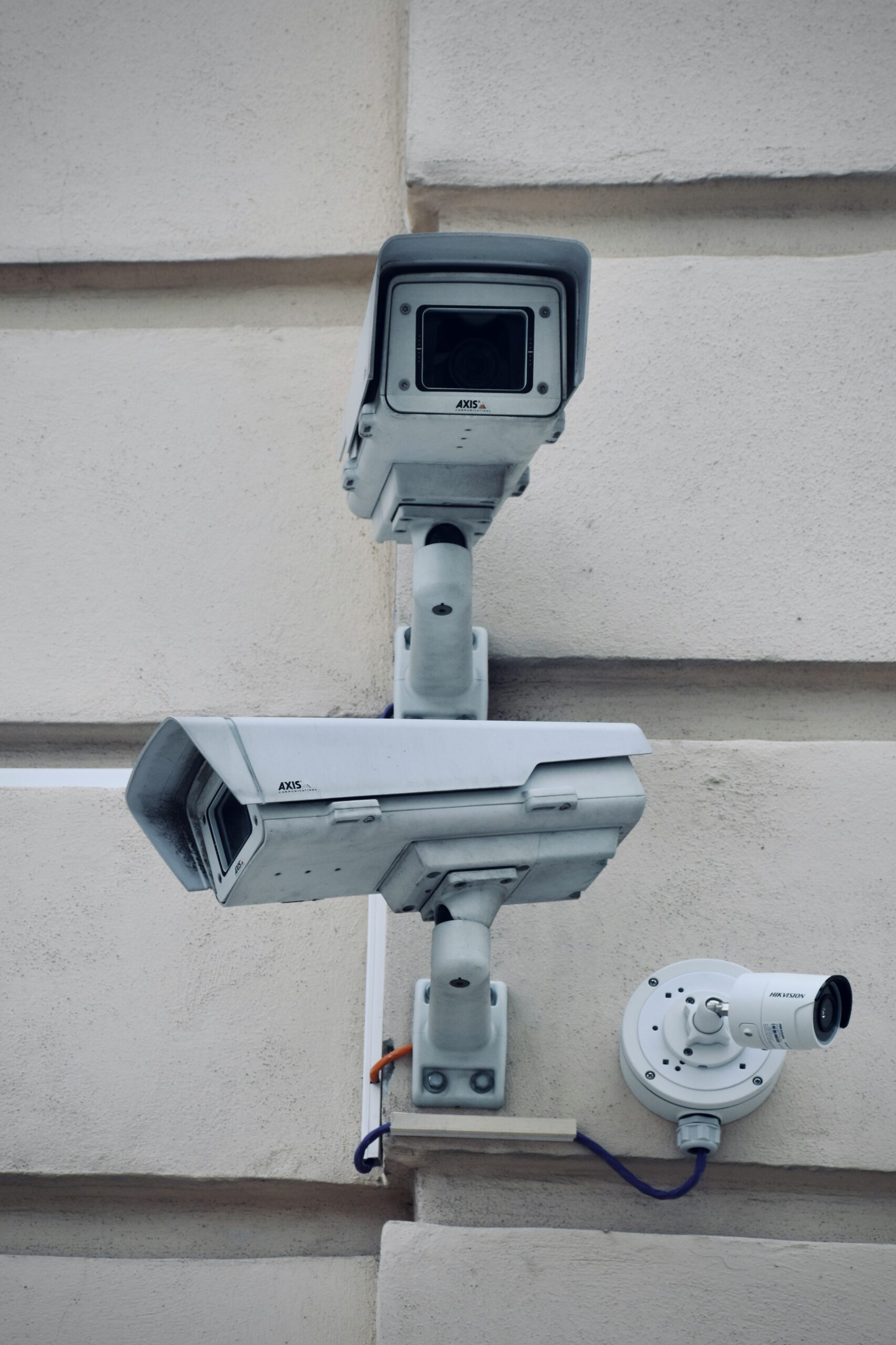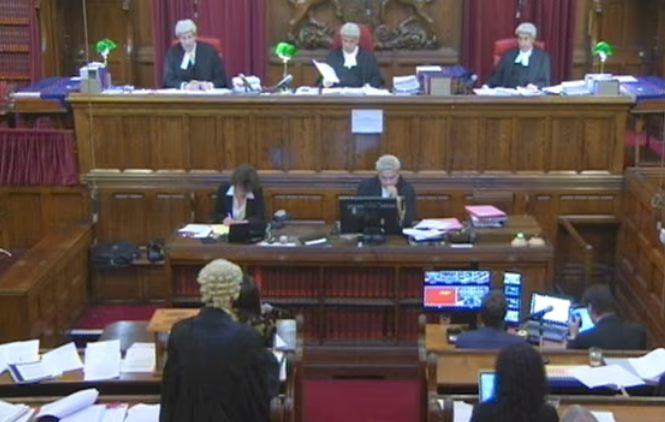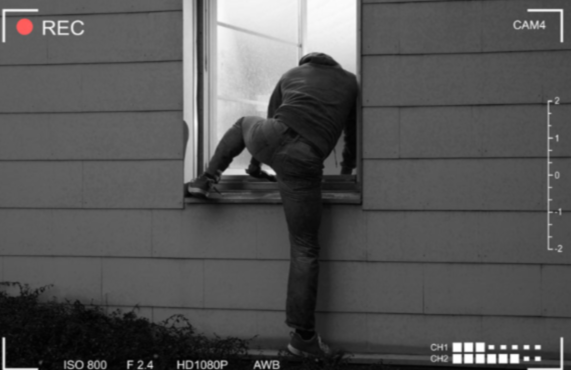Can Home Security Camera Footage Be Used in Court? Legal Rules & Admissibility

- Info and Tips
Imagine catching a crime, an accident, or even a dispute on your home security camera. But can home security camera footage be used in court?
Security cameras are everywhere, from doorbell cams to full surveillance systems, and they often capture critical moments. But not all footage is legally admissible. Courts have strict rules about privacy, consent, video authenticity, and how the footage was obtained. If your video doesn’t meet these legal standards, it is dismissed as evidence.
So, let’s learn when security camera footage can be used in court, what legal requirements you need to follow, and how to ensure your footage is credible and admissible.
Is Home Security Camera Footage Admissible in Court?
Yes, but there are rules. Just because you have footage doesn’t mean the court will accept it. There are legal conditions that decide whether your video can be used as evidence. Security camera evidence is powerful, but it must meet certain legal standards.
Here are the key factors that matter.
State & Federal Laws

Image Source: The Guardian
Laws about security camera footage vary by state. Some states allow recordings in public places but have stricter rules for private areas. Federal laws also come into play, especially if the footage involves wiretapping or audio recording.
Privacy Laws
Did you record someone without their knowledge? Privacy laws protect people from being recorded in certain situations, like inside their homes or private spaces. If the footage was recorded in a place where someone expected privacy, it might not be allowed in court.
Video Authenticity & Tampering
The court needs to know the footage is real and unedited. If a video is altered, cropped, or lacks timestamps, it will not be considered reliable evidence. A clear chain of custody — showing who recorded, stored, and accessed the video — is crucial to proving admissible security footage in court.
How the Footage Was Obtained
If you’re thinking “can home security camera footage be used in court? Make sure the footage is taken legally. If the camera was hidden where it shouldn’t be, or if someone hacked into a security system to get the footage, it won’t hold up in court. In some cases, police also need a warrant to use privately recorded footage.
Legal Requirements for Admissibility
For a video to be used as evidence, it has to follow legal rules. Here’s what matters most.
Consent & Privacy Laws
Laws about recording vary depending on where you live. In some states, you can record video and audio without telling anyone. In others, you need permission from the people being recorded.
- One-party vs. two-party consent: Some states allow recording if at least one person involved knows about it. Others require everyone in the video to give permission.
- Public vs. private spaces: You can usually record in public places (like streets and sidewalks), but recording someone inside their home without permission could be illegal.
Chain of Custody & Authenticity
The court needs to know your footage is real and unaltered. If there’s any sign it was edited, cropped, or tampered with, it is not considered trustworthy legal video footage.
- Timestamps & storage format: A video with a clear date, time, and original format is more likely to be accepted.
Who handled the footage? If multiple people had access to it, you need to prove no one changed or deleted anything.
Quality & Relevance of the Video
Even if the footage is legal and untouched, it still has to be useful to the case. Courts won’t accept blurry, unclear, or irrelevant videos.
- Clear visuals & audio: If faces, license plates, or actions aren’t visible, the footage might not help your case.
- Direct connection to the case: The video must clearly show something important to the legal matter at hand.
When Can Security Camera Footage Be Used in Court?
Finally, time to learn — “can home security camera footage be used in court?
Criminal Cases

Image Source: Smart Vision Plus
If a crime happens on your property — like a break-in, theft, or assault — your security footage can help identify suspects and prove what happened. Police often use video evidence to support investigations and catch criminals.
Civil Cases
Home security footage is often used in civil cases, which deal with personal disputes and financial claims rather than crimes.
- Neighbor disputes: If a neighbor damages your property or trespasses, footage can prove it happened.
- Car accidents: If your driveway camera catches a hit-and-run, the footage can help determine fault.
- Property damage: If a contractor damages your home, video evidence can support your claim.
Workplace Disputes & Liability Claims
Businesses and homeowners may use security footage to settle disputes over workplace incidents, injuries, or liability claims.
- Slip and fall claims: Security footage can prove whether someone actually slipped or if they were exaggerating their injury.
- Employee misconduct: If an employee is accused of theft or harassment, video footage can confirm what really happened.
When Might Security Camera Footage Be Rejected?
Even if your video clearly shows what happened, it can be thrown out if it doesn’t meet legal standards. Here are the main reasons why a court might reject security footage.
Illegally Recorded Footage
If your video was recorded in a way that breaks privacy laws, it likely won’t be accepted.
- Was consent required? Some states require permission to record conversations or certain private areas.
- Where was the camera placed? Recording inside someone else’s home or a private space without consent can make the footage illegal.
- Was the footage obtained legally? If a video was hacked, stolen, or secretly recorded in a restricted area, it can’t be used in court.
Poor Quality or Altered Clips
For a video to be useful, it needs to be clear and unchanged.
- Blurry or dark footage: If faces, actions, or important details aren’t visible, the video won’t be helpful.
- Bad audio: If a conversation is too muffled to understand, the court may not accept it.
- Edited or cropped clips: If the footage has been altered in any way, it could be considered unreliable evidence.
Lack of Timestamp or Metadata
Courts need to confirm that a video is real and recorded at the time claimed. If your footage is missing key details, it is not allowed.
- Timestamps matter: A missing or incorrect date and time can make a video less credible.
- Metadata (digital file info): This helps confirm when and how the video was recorded. Some courts require the original file, not a copy.
Chain of Custody Issues
Courts want to know that a video hasn’t been tampered with or mishandled. If multiple people had access to the footage and it wasn’t properly stored, its reliability can be questioned.
- Who had access? If too many people handle the file, it is challenged in court.
- How was it stored? If the footage was deleted, recovered, or transferred between devices, it is not accepted.
Conclusion
Security camera footage used in court, but only if it follows legal rules. It must be recorded legally, kept in its original form, and clearly show something important to the case. If the video is blurry, altered, or obtained illegally, the court rejects it.
To make sure your footage holds up in court, use high-quality cameras, store videos securely, and follow privacy laws. If you’re unsure whether your footage is admissible, check your local laws or talk to a lawyer.
And if you’re looking for a reliable security camera, explore the best home security camera here.
FAQs
Can home security cameras record audio legally?
It depends on the laws in your state. Some states allow one-party consent, meaning you can record audio if one person (including you) knows about it. Others require two-party consent, meaning everyone in the recording must agree. If recorded illegally, the audio will not be admissible in court.
How long should I keep security footage?
Most security systems store footage for 30 to 90 days, but it depends on the storage capacity and settings. If the footage captures an important event, save it immediately and back it up in cloud storage or an external drive to prevent accidental deletion or overwriting.
Can I use Ring camera footage in court?
Yes, if recorded legally and the video is clear, unedited, and relevant to the case. Ring footage has been used in criminal and civil cases, but privacy laws and chain of custody rules apply. Always ensure the timestamp and metadata are intact to confirm authenticity.
Do police need a warrant to access my security footage?
In most cases, yes. Police usually need a warrant or subpoena to access privately owned security footage. However, if you voluntarily share the footage or if it’s stored on a cloud service that complies with law enforcement requests, they may obtain it without a warrant.
Can I use security camera footage in court?
Yes, if it meets legal standards. The footage must be recorded legally, clearly show relevant events, and remain unaltered. Courts also check the chain of custody, meaning how the footage was handled from recording to submission. Illegally recorded or tampered footage may be rejected.
Are home videos admissible in court?
Yes, if they follow legal requirements. Home videos — whether from a security camera or phone — must be authentic, unedited, and legally recorded. If the footage was obtained in violation of privacy laws, lacks a clear timestamp, or is altered, the court refuses to accept it as evidence.
Which issues might make a video inadmissible as evidence in court?
A court will reject a video if it was illegally recorded, edited, unclear, or lacks proper timestamps. Other reasons include privacy law violations, poor chain of custody, or missing metadata. To improve admissibility, always use high-quality cameras and store footage securely.
Can Ring camera footage be used in court?
Yes, but it must be recorded legally and relevant to the case. Courts will check if the footage follows privacy laws, has clear timestamps, and remains unaltered. If the video meets these conditions, it can be strong evidence in criminal and civil cases.